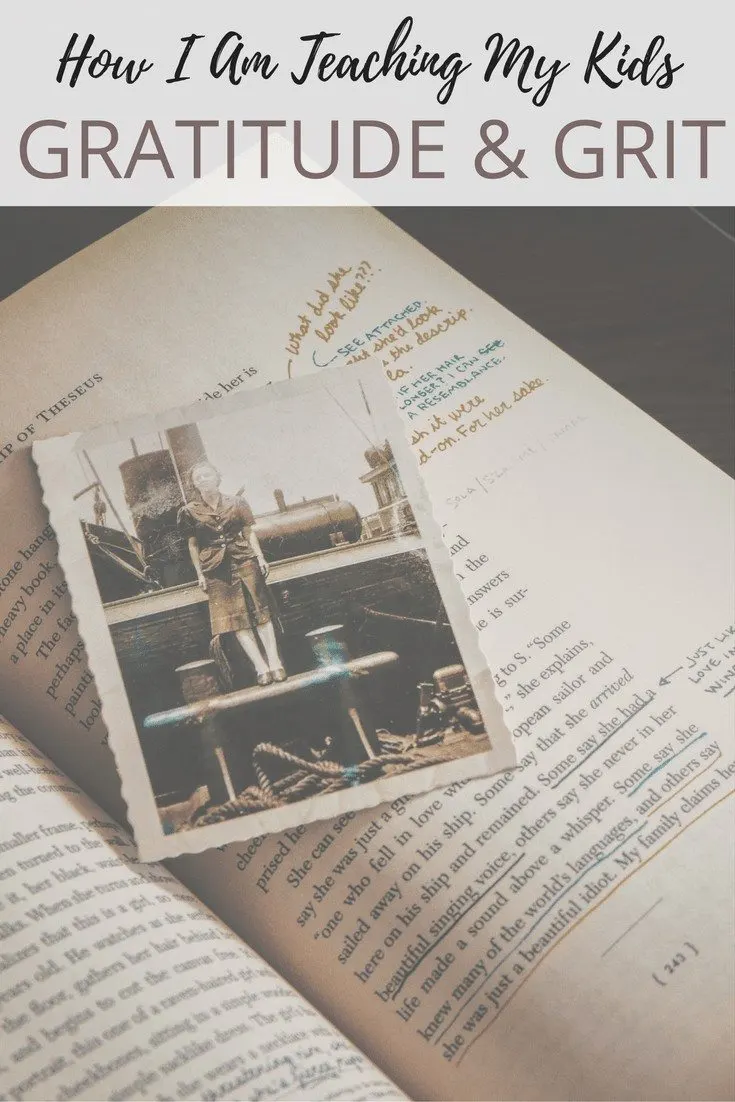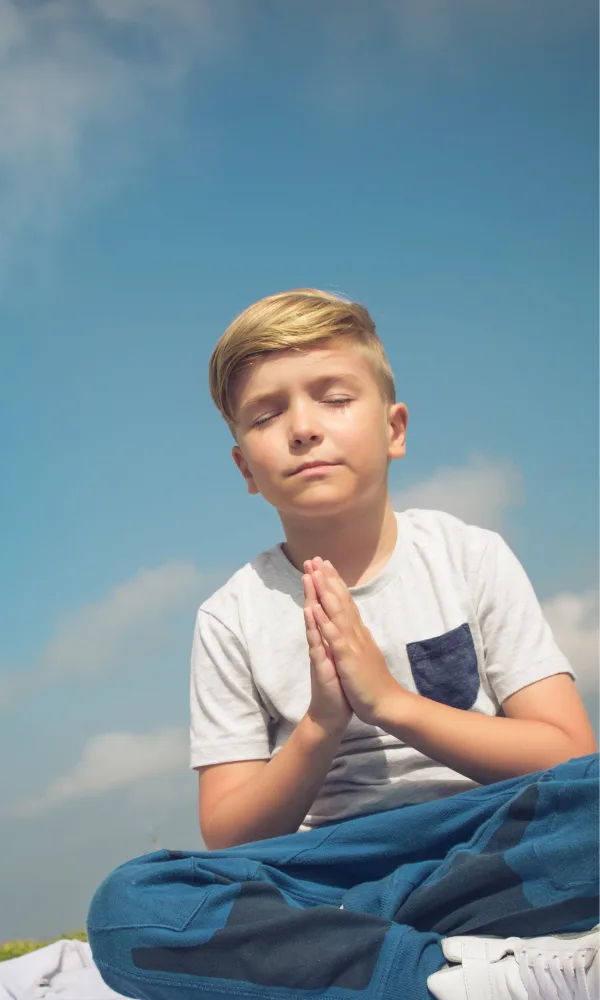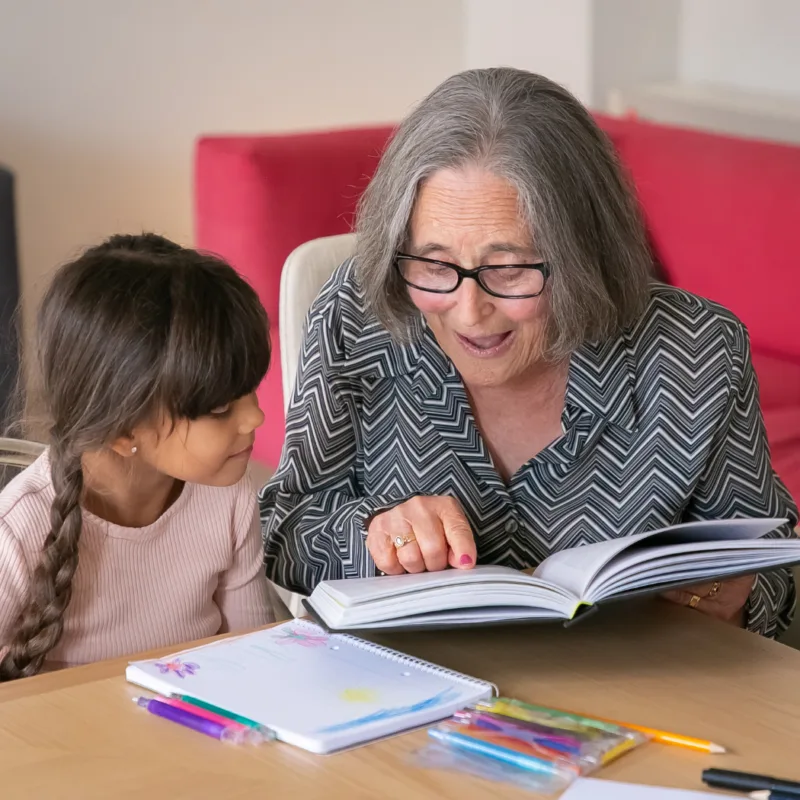I remember sitting at my nana's kitchen table. My fingers fiddled with the plastic tablecloth, and I could see the bumps from various notes, to-do lists, and articles my nana tucked under the tablecloth for safekeeping and reminders.
Grandparents are the best.
I can still smell the coffee. I can still hear the percolator…And when I close my eyes, I see my grandmother's soft, wrinkled skin and feel her thinning hair as I comb through it (one of my favorite things to do).

How I Am Teaching My Kids Gratitude
Even as I grew older, she always let me sit on her lap. That is where she knew I felt safe and close to her.
I spent hundreds of hours, just me and my nana. She'd tell me stories about her time in the army, growing up in the depression era, and her shenanigans as a young woman.
She gave me perspective. She gave me a reality I find so difficult to give my kids today. I understood that life was not always easy, and that being grateful is not something to be taught but something to be lived…
My nana died on 9/7/2001. I was with her, and it was a moment that I carried with me every day.

How to Teach a Child Empathy
That moment defined me as an adult. It solidified the messages within the stories she told me over the years. Suddenly everything she wanted me to embrace in life became crystal clear.
I understood.
Fast forward over 16 years later…I am a mom to 3 young children, and I am scared. I don't feel equipped to give them the experiences and the stories my grandmother gave me. I fear a lack of perspective on the world and an absence of gratitude in everyday life.
I have researched how to teach kids gratitude and emotional intelligence. Books line my bedside. And the book lists? You know, the ones that give you the best children's books to teach gratitude.

Well, I've read all those books, and none sunk in with my kids. Sure, they listen to the words and might ask a question or two, but nothing sticks or seems to ingrain into my boys' psyches.
I was worried and didn't see a solution. How could I inject “adversity” into my kids' affluent life? How could I apply “delayed gratification” in today's generation's real-time, right-now pervasive attitude? Will kids ever be truly happy?
I read once that the happiest people in the world wake up every day and feel lucky to be alive.
Last week my 8-year-old became extremely upset with his younger brother (doing something younger brothers do not out of line).
Teaching Gratitude to Kids
My response at his eye level with a hand on his arm: “Your brother isn't going to change, but you can shift your perspective on his behavior. You can increase your tolerance or find a way to control how you respond to his behavior.”
That response wasn't an original “Marnie Craycroft.” I recalled the words from a podcast I recently listened to on military leadership.
A few mornings ago, my 6-year-old exploded with anger because Halloween candy was not an option for breakfast.

My response nuzzled next to him, looking into his eyes (once he had calmed down): “You know, sweetheart, the struggle ends with gratitude.”
Again, not an original “Marnie Craycroft” but a line I took from a podcast about Leonardo Di Vinci.
So, as I realized that I was pulling my parenting responses from anything other than a children's book or a parenting guide, it occurred to me…

Lessons We Need to Teach Our Kids
The lessons we need to teach our kids don't come from some generic, superficial top-ten list or from a children's book aimed to teach gratitude.
The lessons we should teach our kids about perseverance, grit, hard work, focus, gratitude, making hard decisions, avoiding the easy path, relationships, respect, and so on…are found in the stories of the people who have made our world.
The stories about the people who fought in the great wars, the journeys in life, the people who invented the greatest inventions, the stories pulled from history and literature of real life.
That is what our kids need to hear from us.
Related Read: Children's Books to Teach Mindfulness
So, my next move? I decided to read books such as “The Daily Stoic“, Benjamin Franklin: an American Life, and Leonardo Di Vinci.
I decided to listen to podcast episodes with Walter Isaacson like this one.
I decided to bring alive the harrowing life stories of people like Viktor Frankl, Mike Thorton, and Charlie Plumb.
Not alone…
…but with my kids.
Adult stories. Adult language. Real-life lessons and journeys are shared by people who made our country and world.
The adult stories always win.
